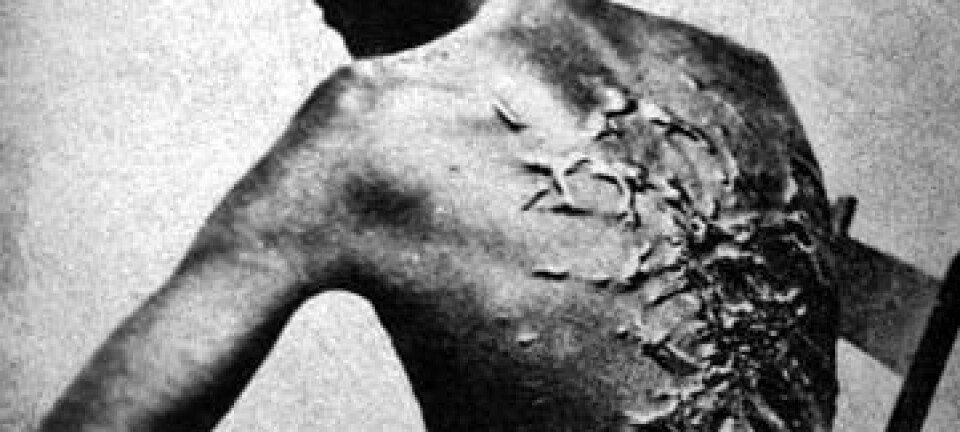
Minimal corruption in Denmark began with the absolute monarchy
Denmark's path to becoming the world's least corrupt country was laid with the introduction of the absolute monarchy in the 17th century.
We can thank 17th-century absolute monarchs for Denmark's re-nomination as the world's least corrupt country in Transparency International's corruption index.
When the absolute monarchy was introduced in 1660, the king laid out a framework for the behaviour of state officials -- judges, customs officers and bailiffs.
He also stipulated that they should not be corrupt, according to PhD Mette Frisk Jensen, who is researching the history of corruption at Aarhus University.
"Much of the explanation as to why we have such low levels of corruption in Denmark is due to the fact that we have a loyal civil service. Its establishment began when Frederik III introduced the absolute monarchy in 1660."
"The absolute monarchs demanded the unconditional loyalty of their civil servants. Loyalty proved to be an effective tool when it came to securing a public administration in which corruption was minimised over the centuries to come," says Jensen.
The monarchs wanted to secure maximum wealth and power for their successors
When the Danish king became an absolute monarch it was in his personal interest to ensure that his civil servants were not corrupt. The shire, town and district bailiffs and the men responsible for the state's monetary affairs were not to be for sale -- they should serve the king alone.
"When the absolute monarchy was introduced in 1660, Frederik III assumed all power and authority. Denmark became a hereditary kingdom instead of the former electoral kingdom, in which the kings were chosen by an aristocratic Council of State," says Jensen.
"The fact that Denmark became a hereditary kingdom meant that the king could be certain that the power of the monarchy would remain in the family in the long term. It was therefore in his interest to keep tabs on the state's administration and its monies," says Jensen.
This firm grip on public servants' loyal administration of the king's interests was initially an attempt to secure consolidation of the monarchs' absolute power.
"However, an ingenious added bonus was an effective control of public servants' systematic corruption, which was a long term bonus for the absolute monarchy," says Jensen.
Civil servants were more loyal
Not only did the absolute monarchy deny the aristocracy the privilege of appointing monarchs at a meeting of a Council of State, it also meant that the offices of the civil servants were not automatically inherited by the aristocracy.
Instead, the monarch started to appoint civil servants on the basis of their qualifications.
"The first absolute monarchs very deliberately avoided their former dependence on the aristocracy by repealing the aristocrats' favours and their right to be first in line for significant positions."
"Instead, men of non-aristocratic descent were gradually appointed to positions within the state. The monarchs attempted in this way to avoid the emergence of a real power-political aristocratic alternative to the absolute monarchy," says Jensen.
At the same time it became easier for the king to demand much sought-after loyalty because he was able to dismiss his civil servants if he detected any shilly-shallying. This independence was emphasised by the fact that civil servants were required to swear allegiance to the king.
Clear instructions and tough penalties
Slowly, the king limited his civil servants' ability to deal dishonestly with the state's money.
"From the end of the 17th century a whole range of elaborate instructions were drawn up, describing the individual tasks assigned to the civil servants."
"The requirements regarding the civil servants' administration were written down. This resulted in the long term in a more homogenous administration of the state and a limitation of the freedom of action of the individual civil servants," says Jensen.
At the same time, the king declared illegal a number of corrupt official acts.
-
In 1676 receiving 'drinks and gifts' -- what we call bribes -- was forbidden under penalty of death.
-
The year 1683 saw the publication of the body of laws, Danske Lov, in which it became a crime for civil servants to perpetrate forgery.
- In 1690, a statutory instrument was introduced determining the punishment the civil servants who help themselves to the state purse. The penalty was life imprisonment with hard labour.
"All in all, these were harsh penalties which certainly deterred a good number of civil servants receiving bribes or committing embezzlement," says Jensen.
The king did not, however, reign by the whip alone. A ranking provision was introduced in 1671 which enabled the monarch to confer prestigious titles in recognition of good service. These included Lord Chamberlain, Councillor of State and Lord Justice.
Trained lawyers created dependable rule of law
Parallel to their oath of loyalty, established instructions and tough penalties the corruption, greater demands developed regarding the civil servants' formal professional qualifications.
The monarchs preferred to appoint trained lawyers who were able to understand the laws -- and abide by them.
"In 1736, a formal course of legal education was established at the University of Copenhagen, the law graduates of which began to occupy royal offices," says Jensen.
By the beginning of the 19th century, the majority of royal appointees were in possession of a law degree. They were legally trained and conversant with current legislation.
"It goes almost without saying that this greatly improved their potential to administer in pursuance of the law," says Jensen.
From 1821 many of the most central state offices legally required a law degree.
"This undoubtedly improve the conditions for the establishment of a constitutional state which was administered and governed in accordance with established rules of law, leaving much less leeway for corruption," says Jensen.
Professor: corruption is just like cleaning
Jensen's research has received the positive acclaim of one of the authorities on Danish history research.
"I would not hesitate to refer to Mette anyone who wants to know anything about corruption. Her study is the only proper, convincing one we have," says professor Gunner Lind of the University of Copenhagen.
He has read Jensen's research and has done research into how the state administration functioned in the 17th and 18th centuries. He believes that Jensen's research makes it clear that there is no direct route to less corruption.
"It looks as though corruption is rather like cleaning. It's not something you do once and for all. For example, corruption in Denmark increased from around 1670 but became less widespread in the early 18th century. And Mette Jensen has also shown how it flourished again in in the 19th century before being beaten back down again," says Lind.
---------------
Read the original story in Danish on Videnskab.dk
Translated by: Hugh Matthews









